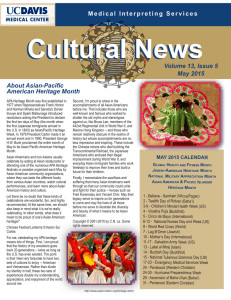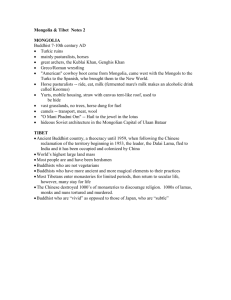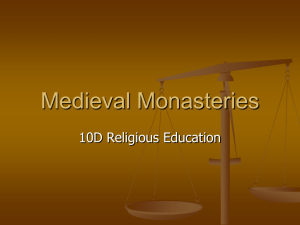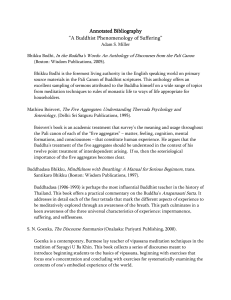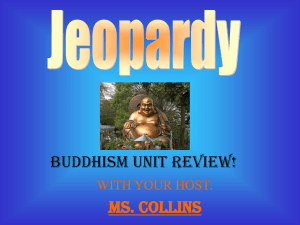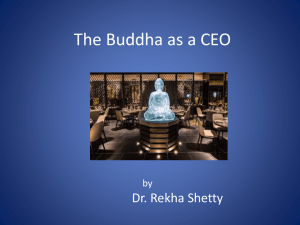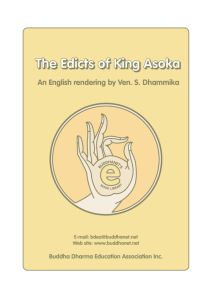Speech - Royal Thai Embassy
advertisement
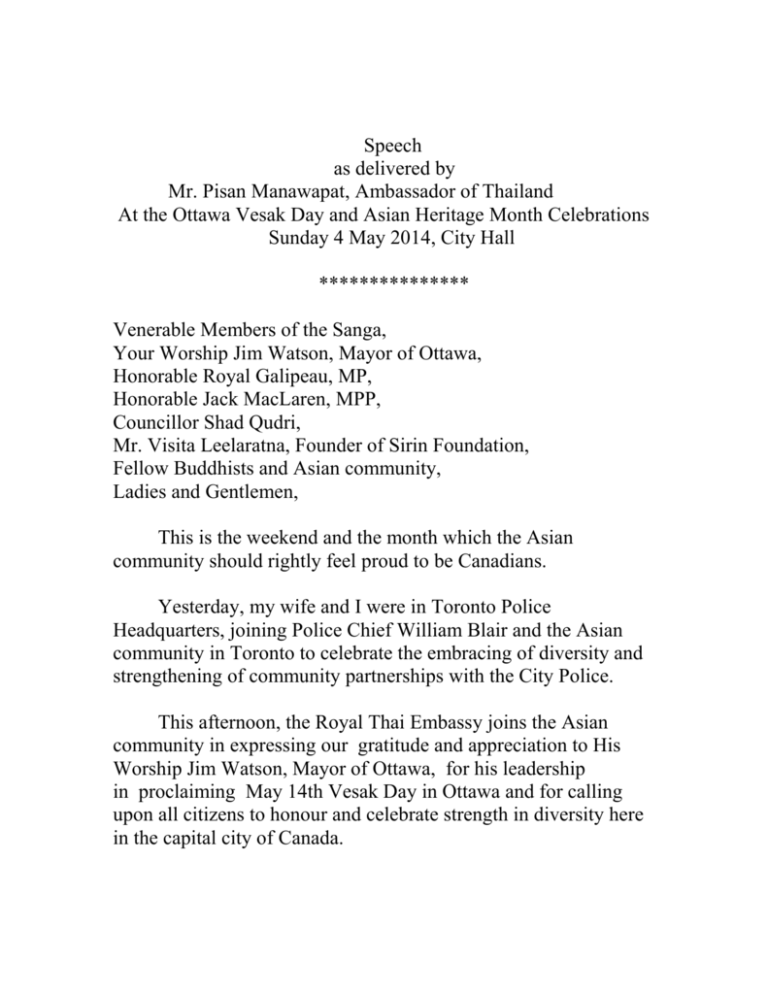
Speech as delivered by Mr. Pisan Manawapat, Ambassador of Thailand At the Ottawa Vesak Day and Asian Heritage Month Celebrations Sunday 4 May 2014, City Hall *************** Venerable Members of the Sanga, Your Worship Jim Watson, Mayor of Ottawa, Honorable Royal Galipeau, MP, Honorable Jack MacLaren, MPP, Councillor Shad Qudri, Mr. Visita Leelaratna, Founder of Sirin Foundation, Fellow Buddhists and Asian community, Ladies and Gentlemen, This is the weekend and the month which the Asian community should rightly feel proud to be Canadians. Yesterday, my wife and I were in Toronto Police Headquarters, joining Police Chief William Blair and the Asian community in Toronto to celebrate the embracing of diversity and strengthening of community partnerships with the City Police. This afternoon, the Royal Thai Embassy joins the Asian community in expressing our gratitude and appreciation to His Worship Jim Watson, Mayor of Ottawa, for his leadership in proclaiming May 14th Vesak Day in Ottawa and for calling upon all citizens to honour and celebrate strength in diversity here in the capital city of Canada. When Mr, Visita Leelaratna of Sirin Foundation approached me to participate and support the Vesak Day and the Asian Heritage Month Celebrations, I accepted his thoughtful gesture with great enthusiasm. Buddhism is a main pillar of the Thai nation. It was Thailand which was instrumental in working with other nations to get Vesak Day recognized by the United Nations General Assembly. 90 % of its 65 million people call themselves Buddhists. Like Buddhists all over the world, Thais regard Vesak Puja the most important day among all Buddhist holidays. On the full moon night of May, Thais celebrate nationwide, making merits, chanting and mediation in solemn dedication to the recollection of the Buddha who was born on Vesak day. Two hundred years or so after the Buddha's passing away, again, also on Vesak Day, the great Buddhist Emperor, King Asoka of India, dispatched small groups of monastics to travel throughout the world, one was sent to Southeast Asia. The Theravada tradition of Buddhism re-established itself with the mergence of Thai kingdom in the 13th century. The first King of Sukhothai built a monastery for a community of forest trained monks from Sri Lanka. This began the close relationship between the Thai nation and Theravada Buddhism which has continued until the present day, Thailand is now home to over 40,000 monasteries and temples. In the past and up till now to a certain extent, temples act as centre of village life, a bit like this City Hall, providing social services, teaching, schooling, counseling, healing, sheltering and food for the needy, Temples are different from monasteries in location, Monasteries tend to be located in forested areas where the monks tend to spend more time on meditation practice. Since my arrival in Canada last October, I am very happy to personally witness the spread of Buddhism from Thailand in Canada of both temple and monastery traditions. One leading venerable master, Phra Dhammongkolyarn of a very popular temple in Bangkok has set up 6 temples across Canada. In each of these temples, there is a "Will Power Institute " which offers simple and powerful meditation technique for everyone. The nearest to Ottawa is in Kanata, I am grateful that two of its resident monks are joining this celebration with us this afternoon. Another influential meditation master, the late Luangpoh Chah of forest tradition has a monastery branch in Perth, Ontario, an hour and a half drive from here. Tisarana Buddhist Monastery has been supervised by a senior resident monk, a Canadian son of Latvian origin. He gives dhamma talk ( Buddhist teaching ) and offers meditation practice as well as conducts regular retreats for all interested individuals, majority of whom are Canadians from all ages and walks of life. I am certain that temples and monasteries from other Asian countries are making no less contribution across Canada. Most Canadians should not find the dhamma or Buddhist teaching strange because they hold dear to their hearts the pursuit of freedom and happiness while extending generosity and compassion even to strangers and migrants from much poorer backgrounds. These essentially are the same basic values of those who follow and practice dhamma. The next step and eventually the ultimate result of dhamma practice is freedom from all suffering and from the causes of suffering, It is the perfection of wisdom, compassion and inner freedom. The Buddha invited those who are interested in his discovery of truth to investigate through the training of the mind, which is meditation, in order to enable wisdom to arise, feeling the sensation of non self and letting go of ego and desires for a complete liberation of mind and supreme happiness or Nivarna which the Buddha attained on Vesak Day 25000 years ago, I thank each one of you for being part of this celebration.
